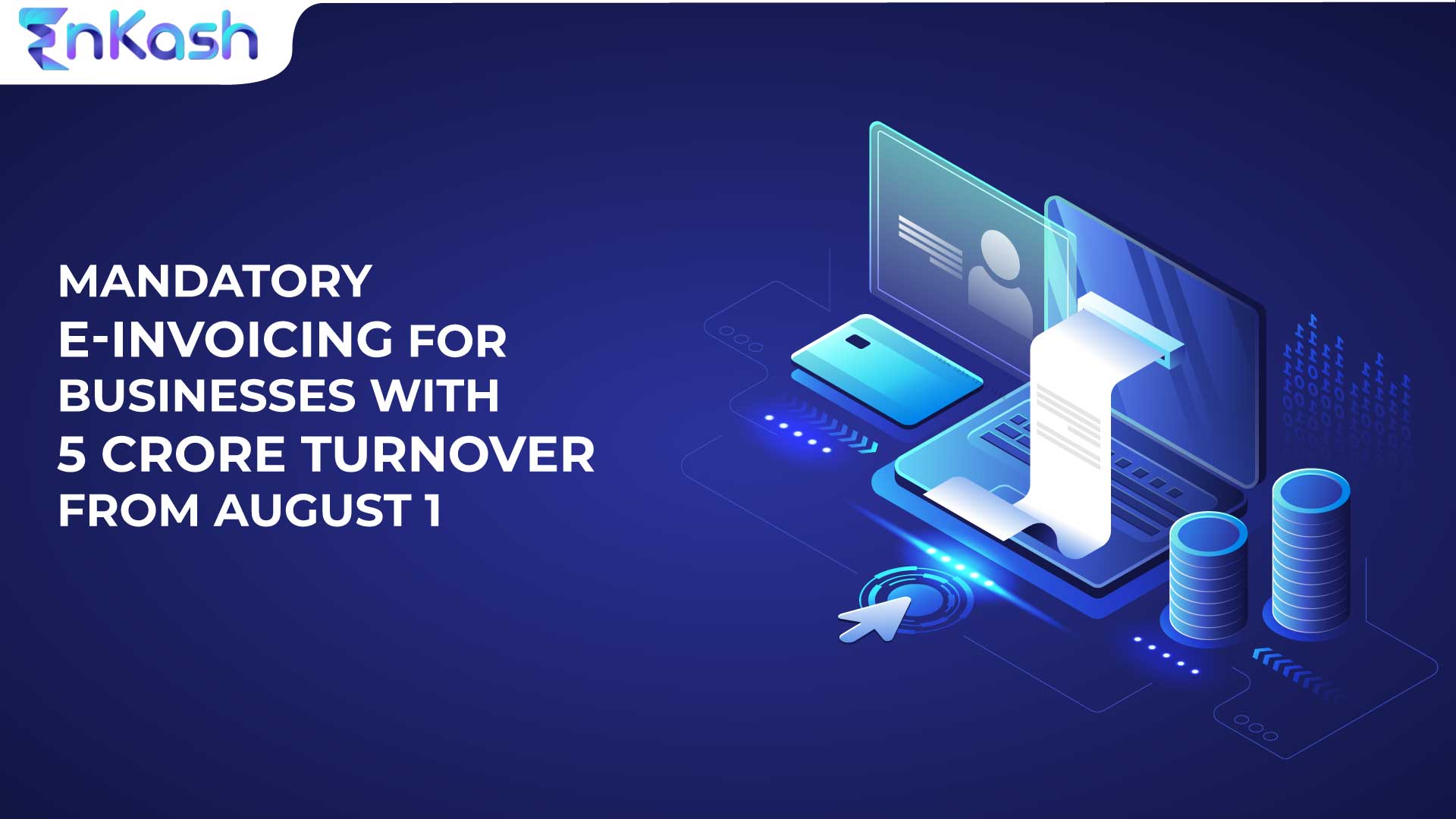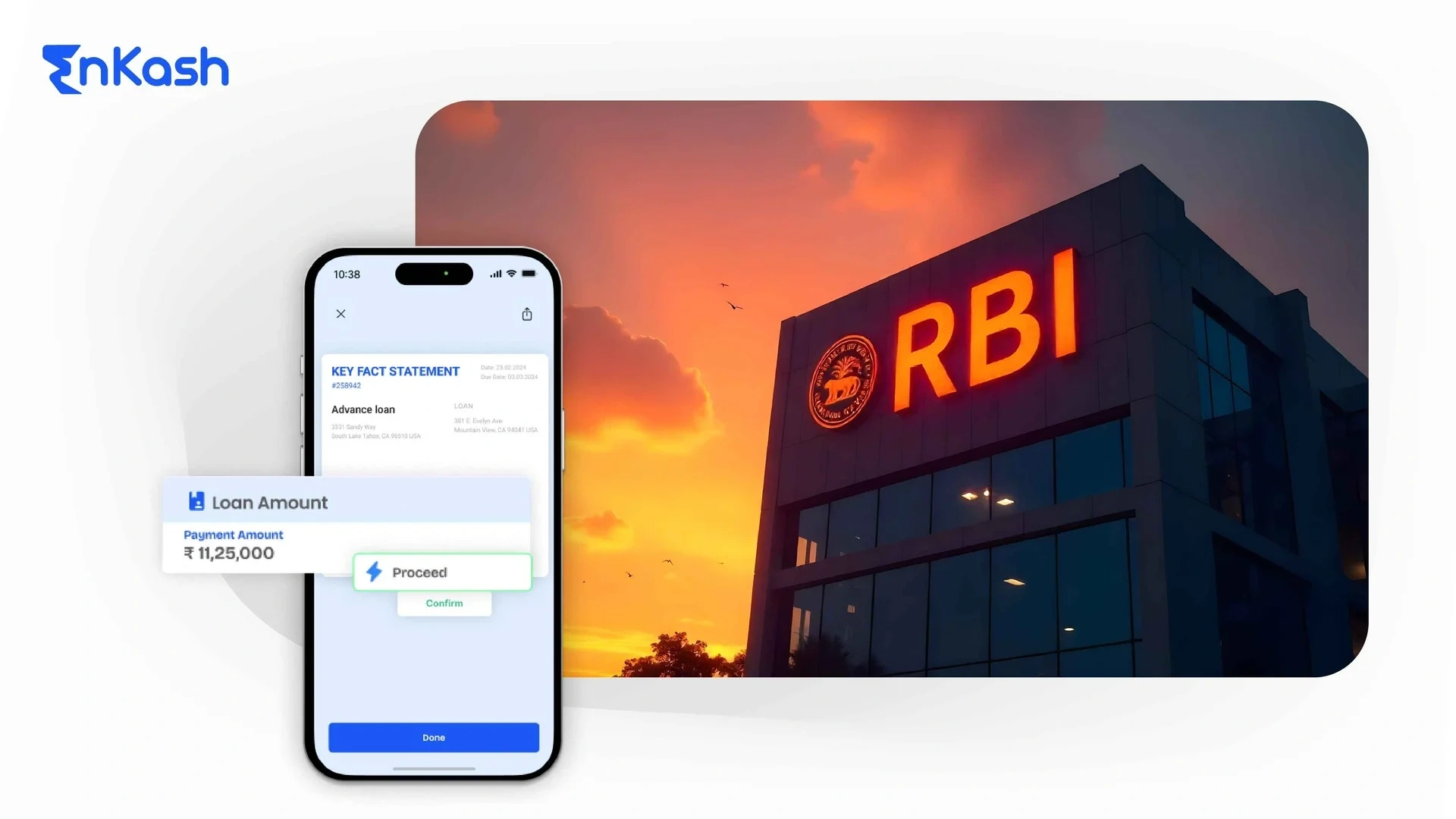The e-invoice limit as per a government Notification No 10/ 2023 – Central Tax has been reduced to Rs 5 crore and will be in effect from August 1, 2023. This implies that companies with over Rs 5 crore turnover will be required to generate electronic invoices, commonly known as e-invoices. This shift aims to enhance compliance and plug revenue collection gaps. Previously, the mandate for e-invoicing applied to companies with a yearly revenue of Rs 10 crore or more. With the new regulation, the scope of businesses covered by e-invoicing will expand, including more micro, small, and medium enterprises (MSMEs). Let’s delve into the details of this development and understand its implications for the business ecosystem.
Expanding E-Invoicing Compliance
In its notification dated May 10, the finance ministry announced the reduction in the threshold for e-invoicing. From August 1, businesses engaged in business-to-business (B2B) transactions surpassing a transactional value of Rs 5 crore must generate e-invoices. This move is expected to streamline the invoicing process and improve tax compliance. The change will particularly affect the MSME sector, requiring them to adopt e-invoicing practices.
Which Businesses are covered in the sixth phase of E-Invoicing?
In the sixth phase of e-invoicing under the Goods and Services Tax (GST) regime, businesses with a turnover exceeding Rs 5 crore are covered. This latest development, which will take effect from August 1, significantly shifts the compliance landscape for larger enterprises. As per the mandate, these businesses must now generate electronic invoices, commonly known as e-invoices, for all their business-to-business (B2B) transactions. The expansion of e-invoicing to include companies with turnovers over Rs 5 crore aims to enhance transparency, streamline invoicing processes, and promote efficient tax compliance in the Indian business ecosystem.
Is E-Invoicing compulsory?
As per the GST rules, businesses meeting specific turnover thresholds must generate electronic invoices for their B2B transactions. Non-compliance with the e-invoicing requirement can lead to various consequences and penalties.
The consequences of the non-generation of e-invoices can include financial penalties imposed by the tax authorities. These penalties can be substantial and may vary based on the severity and frequency of non-compliance. Additionally, businesses failing to comply with e-invoicing regulations may face delays or disruptions in their supply chain due to potential difficulties in availing of input tax credits (ITC). Moreover, persistent non-compliance could trigger audits and scrutiny from tax authorities, leading to further legal and financial complications for the non-compliant businesses.
What are the Benefits for Businesses?
Experts believe that e-invoicing will be a boon rather than a burden for businesses. By facilitating compliance among suppliers, e-invoicing ensures a seamless flow of input tax credits and reduces credit-related concerns. This streamlined system will not only enhance the overall efficiency of businesses but also minimize turnover regarding credit issues. The implementation of e-invoicing initially began with large enterprises with revenue exceeding Rs 500 crore. Over time, the threshold was gradually lowered to include businesses with a turnover of Rs 5 crore. Including the MSME sector in the e-invoicing, regime is expected to bring down costs, reduce errors, expedite invoice processing, and mitigate commercial disputes.
What are the Objectives and Impact of E-Invoicing?
Objectives of E-Invoicing
Enhanced Tax Compliance: E-invoicing aims to promote better tax compliance by ensuring the accurate reporting of transactions and reducing the scope for errors or discrepancies in invoices.
Streamlined Business Processes: The implementation of e-invoicing seeks to streamline business processes by digitizing invoice generation, transmission, and processing. This helps in reducing manual intervention and paperwork, leading to increased efficiency and productivity.
Simplified Tax Filing: E-invoicing simplifies the tax filing process for businesses as the electronically generated invoices are directly integrated with the GSTN (Goods and Services Tax Network). This integration enables seamless and real-time reporting of sales and purchases, making the tax filing process more convenient and less time-consuming.
Improved Input Tax Credit (ITC) Mechanism: With e-invoicing, businesses can expect better management and verification of input tax credits, reducing instances of fraudulent or incorrect claims. This, in turn, benefits businesses by optimizing working capital and reducing tax burdens.
Impact of E-Invoicing
Reduced Tax Evasion: The e-invoicing limit will create a transparent and traceable invoicing process, making it difficult for businesses to evade taxes. This leads to increased tax collection and strengthens the overall tax system.
Faster Payment Processing: The digitization of invoices enables faster and more efficient payment processing between businesses, promoting healthy cash flow management.
Enhanced Business Efficiency: E-invoicing automates various aspects of the invoicing process, such as data entry, validation, and reconciliation, leading to improved accuracy and efficiency in business operations.
Cost Savings: Adopting e-invoicing reduces the reliance on paper-based invoices, printing, and postage costs, resulting in cost savings for businesses.
Compliance and Penalties: With e-invoicing becoming mandatory for eligible businesses, compliance with the regulation is crucial to avoid penalties and potential legal issues arising from non-compliance.
Timeline of E-Invoicing Implementation
To understand the progressive nature of e-invoicing implementation, let’s review the timeline of its adoption:
- October 1, 2020: Companies with revenue above Rs 500 crore were mandated to use e-invoicing for B2B transactions.
- January 1, 2021: The requirement expanded to businesses with revenue exceeding Rs 100 crore.
- April 1, 2021: The threshold was further reduced to include companies with a turnover of over Rs 50 crore.
- April 1, 2022: The threshold was lowered to Rs 20 crore.
- October 1, 2022: E-invoicing became mandatory for businesses with a turnover surpassing Rs 10 crore.
- August 2, 2023: The threshold will be further reduced to Rs 5 crore.
Preparing for the Change
Businesses need to review their vendor masters and ensure that all vendors providing goods or services and surpassing the turnover threshold of Rs 5 crore issue electronic invoices. By doing so, they can avoid any disputes arising from using input tax credits (ITC).
Who should issue an E-Invoice?
Under India’s Goods and Services Tax (GST) regime, businesses meeting specific turnover thresholds must issue e-invoices. As of the latest implementation phase, starting from August 1, businesses with a turnover exceeding Rs 5 crore must generate electronic invoices for all their business-to-business (B2B) transactions. E-invoicing is compulsory for such businesses and must be adhered to ensure compliance with GST regulations. However, businesses with turnovers below the specified threshold are not required to issue e-invoices. Eligible businesses must follow the e-invoicing requirement to avoid penalties and streamline their invoicing processes in alignment with the GST guidelines.
How can EnKash help you with e-invoicing?
EnKash offers valuable assistance with e-invoicing, empowering businesses with a unified platform that revolutionizes how they manage their expenses. As Asia’s first and smartest spend management platform, EnKash is dedicated to amplifying savings driven by technology, transparency, and mutual trust. EnKash enables businesses to achieve operational efficiency, streamline cash flow management, and fast-track growth through innovative products and solutions. With a strong focus on e-invoicing, EnKash ensures businesses can easily generate, track, and manage their electronic invoices, seamlessly complying with regulatory requirements. By leveraging EnKash’s e-invoicing capabilities, businesses can optimize their invoicing processes, minimize manual efforts, and enhance overall financial efficiency. Experience the power of EnKash‘s e-invoicing solutions to elevate your business operations and foster success in the competitive market landscape.
Conclusion
Implementing a mandatory e-invoicing turnover limit exceeding Rs 5 crore from August 1 marks a significant step towards enhancing tax compliance and streamlining business transactions. By including the MSME sector in the e-invoicing regime, the government aims to reduce costs, minimize errors, expedite invoice processing, and foster a more conducive business environment. Businesses must be prepared and ensure that their vendors comply with the new regulation to avoid any complications related to input tax credits. As the country progresses towards a digital future, embracing e-invoicing will pave the way for more efficient and transparent business practices.
FAQs
Q1: What is the new requirement regarding the e-invoicing limit for businesses in India?
A: Starting from August 1, businesses with a turnover exceeding Rs 5 crore must generate e-invoices for all their B2B transactions.
Q2: Has the threshold for e-invoicing been lowered?
A: Yes, the threshold for e-invoicing has been reduced from Rs 10 crore to Rs 5 crore, according to a notification from the finance ministry.
Q3: How will including MSMEs in the e-invoicing regime benefit the business ecosystem?
A: Including MSMEs in the e-invoicing regime is expected to lower costs, rationalize errors, facilitate faster invoice processing, and minimize commercial disputes, creating a favorable business environment.
Q4: When did the implementation of e-invoicing begin for businesses in India?
A: The implementation of e-invoicing started with businesses with revenue exceeding Rs 500 crore on October 1, 2020, and has gradually expanded to include businesses with lower turnovers.
Q5: What should businesses do to ensure compliance with the new e-invoicing requirement?
A: Businesses need to review their vendor masters and ensure that any vendor providing goods or services exceeding the turnover threshold of Rs 5 crore issues electronic invoices starting from August 2023. This step is essential to avoid disputes related to input tax credits.
Q6: What is the current limit for e-invoicing?
A: Businesses surpassing Rs 10 crore turnover in India must generate e-invoices for their B2B transactions.
Q7: Who is eligible for an e-invoice in 2023?
A: As of 2023, businesses in India with a turnover exceeding Rs 5 crore will be eligible for e-invoicing. Starting from August 1, 2023, the e-invoicing mandate applies to companies with a B2B transactional value of over Rs 5 crore.
Q8: What documents must be reported to the GST system?
A: Some of the key documents that need to be reported to the GST system include:
- Invoices: All tax invoices issued for the supply of goods or services, whether within a state (intra-state) or between states (inter-state), need to be reported to the GST system. These invoices must contain specific details such as the GSTIN (Goods and Services Tax Identification Number) of the supplier and recipient, the description of goods or services, the applicable tax rates, and the total amount.
- Credit Notes and Debit Notes: Any credit notes issued to rectify errors or reduce the value of an invoice, or debit notes issued to increase the value of an invoice, must be reported to the GST system.
- Shipping and Delivery Challans: Challans used for transporting goods from one place to another, such as shipping and delivery, must also be reported to the GST system.
- Advance Payment Receipts: Receipts generated for advances received against future supplies of goods or services must be reported to the GST system.
- Bill of Supply: In cases where registered taxpayers issue bills of supply instead of tax invoices, these documents must also be reported to the GST system.
- Export Invoices: Invoices issued for the export of goods or services must be reported to the GST system, as these transactions are zero-rated under GST.
- E-way Bills: For the movement of goods exceeding a certain value and distance, e-way bills must be generated and reported to the GST system.














